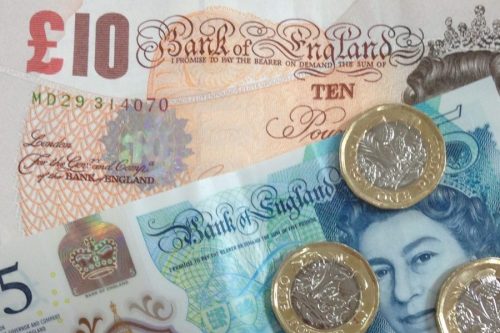Mixed picture as inflation remains stuck in September

The rate of inflation remained stable at 6.7% in September, according to new figures from the Office for National Statistics (ONS) released this morning (October 18).
The soaring cost of motor fuel and hotel rooms has been blamed for keeping inflation high last month.
Inflation had been tipped to fall to 6.5% in September by analysts and the Bank of England and its failure to fall will come as a blow to the Government’s aim of halving the rate by the end of the year.
ONS chief economist Grant Fitzner said: “Food and non-alcoholic drinks prices eased again across a range of items with the cost of household appliances and airfares also falling this month.
“These were offset by rising prices for motor fuels and the cost of hotel stays.
“The annual rate of core inflation has slowed again this month, driven by a slowdown in the cost of many goods though services prices did rise a little this month.”
Alpesh Paleja, CBI lead economist, said: “Inflation has once again surprised on the upside by staying put in September. While we expect it to resume falling in the months ahead, the near-term outlook for prices is now more mixed. The recent rise in global oil prices may mean that the path back down is bumpier, and domestic price pressures are probably stronger than the Bank of England would like.
“Nonetheless, with surveys of wage growth softening more noticeably than official data, there are some reassuring signs that underlying inflationary pressures may be waning.
“Despite staying unchanged, inflation has once again come in lower than the Bank’s forecast. But the Monetary Policy Committee will be vigilant against the CPI rate moving sideways rather than firmly downwards, so it’s unclear if today’s data calls time on further rate rises. But either way, it’s still very likely that interest rates are close to their peak, with the stance of monetary policy now judged to be restrictive. The Bank has signalled that rates are unlikely to be cut anytime soon, however, so households and businesses should plan for tighter financial conditions persisting.”
George Lagarias, chief economist at Mazars said: “Inflation comes in waves. The picture from the data is unfortunately a simple one. As food and goods prices begin to fall, energy prices are rising again. This is a sign that the second wave of inflation is subsiding, but the third wave is ahead of us.
“The swiftly rising tensions in the Middle East are exacerbating the situation. A quick end to oil price speculation could, all other things being equal, stop the third inflation wave at the onset and allow prices to normalise.”









